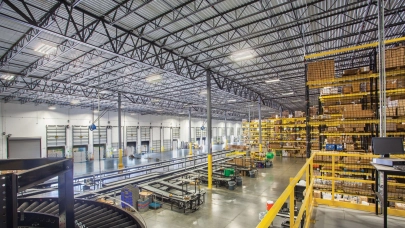
Many industry discussions have long chalked up the retail market as an industry in deep recession, with very bleak prospects. According to the participants of the retail panel at the Future of Real Estate 2023 conference in Warsaw in November, the retail industry in Poland is not only not dying, but is regaining vigour and investor interest. The event was co-organized by Property Forum and RICS.
As retail expert Jolanta Wawrzyszuk, former Group Head of Leasing at Atrium and the panel moderator said in the very beginning, “Retail is transforming, retail is adopting and reinventing itself. And is still a very attractive option for many investors. Of course, there is a huge downfall in investment volume this year, but it is worth noting that in the first three quarters of 2023, for the first time in the last few years, retail properties were more popular than offices. It is currently second-class after industrial, with a 26% share. It actually means that we see some investors regaining their confidence in retail and rediscovering it. It is also noteworthy, that 55% of these investments were in the retail parks”.
Her words were confirmed by Ryszard Wysokiński, Head of Department, Investor Relations at Kaufland Polska: “From our perspective, retail has never been down. The last two or three years were hard, but at the very end, the food operators were very successful. The sales were outpacing inflation and it was a good time for us. Food operators have proved their significance for any asset as a footfall bringer or anchor. Food-anchored convenience shopping malls were the favourite product for the investors”, said Wysokiński.
According to Ola Mazzini, Chief Operating Officer at Sierra Balmain, the huge popularity of retail parks is an outcome of the fact, that the market in the large cities is saturated with the traditional retail galleries. “Why are we building so many retail parks and not shopping centres? I think we have enough of them in Polish cities. Speaking of the smaller assets, the majority of them go up in small towns. The demand is just there. Tenants want to be closer to their customers. Online trade is not delivering – not everything can be bought online and delivered there, the transport is also expensive. And people are not at home all the time, after all. The tenants simply want to be located closer to their customers, this is why the capital is going there. It's also a reflection of the European trends. It's not just Poland – we are just catching up with Western Europe”, claims Mazzini.
However, not all developers and investors stick to the retail parks. Some of them still see the future in larger galleries, like Nhood, which is currently developing two such objects, one in the Wilanów district of Warsaw and the other in Góraszka (Mazovian voivodship). “Generally speaking, the market is saturated, these are probably one of the last projects on that scale. Most probably the future of retail galleries is in the extensions, remodelling or the ESG implementations. But we still see the potential in certain locations to go with bigger projects like we are doing. The construction costs are high, that`s true. But they are now more stable than recently, and there is something like value engineering. When choosing your contractors, you just need to find the optimal solutions that will bring you maximum value, while at the minimum risk”, said Ada Walentek, General Manager of NHOOD Poland.
Whatever the future of the Polish retail property market, predictions of its imminent death due to the dynamic expansion of e-commerce have completely failed to materialise. “In Poland, shopping malls are currently responsible for 30% of the total trade turnover. E-commerce before Covid had a share of around 6%, and during the pandemic, it rose up to 10%. According to the GFK Polonia research agency, it dropped and currently is at about 8%. In shopping malls, we have 35,000 shops responsible for the mentioned 30% of total turnover and at the same moment, for this 8%, we have 49,000 e-commerce shops. These numbers are very meaningful”, commented Anna Malcharek, Managing Director at Gemini Holding.



